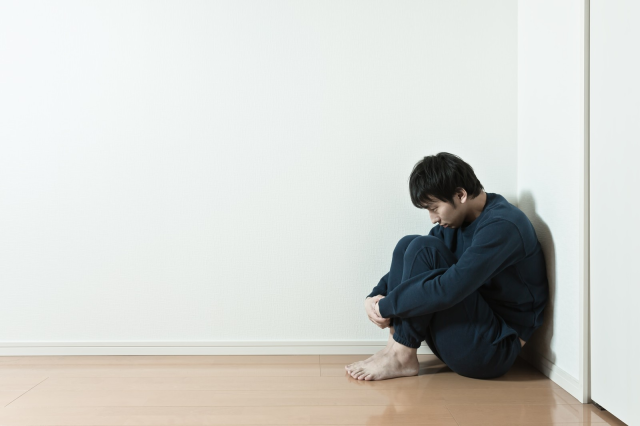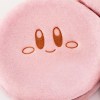
”I couldn’t do anything,” says hikikomori in written statement.
A common question about Japan’s shut-ins, or hikikomori as they’e called in Japanese, is how they manage to survive. If they never leave their houses, or, in the case of some extreme hikikomori, even their bedrooms, how do they obtain food, and clothing, or pay their rent if they live alone?
Usually, the answer is that their parents provide them with their fundamental life necessities, largely due to societal attitudes in Japan regarding responsibility and not causing burdens for those outside your immediate social group. Even if parents are willing to continue supporting their children into adulthood, though, many worry about what will happen to hikikomori when their parents pass away.
However, this week the Kanagawa Prefectural Police were faced with the problem of what happens to the mother of a hikikomori when she herself dies. Officers arrested a 49-year-old male hikikomori living in Yokohama’s Kanazawa Ward on charges of corpse abandonment, though the semantics are a little shaky since he’d simply left his mother’s dead body in the home they shared while continuing to live there himself as well.
Investigators estimate that the mother, who was 76 years old, passed away sometime in mid-October while in the home she shared with her son, the oldest of her children. When her daughter, who is 45, came to pay them a visit on November 4, she saw only her brother up and about, before discovering that he had placed their mother’s lifeless body in her bedroom weeks earlier after she collapsed in the kitchen and expired.
The sister then contacted the authorities, who came to the home and formally arrested the son on November 5. The police describe the son, who is unemployed, as being almost entirely incapable of conversing with other people, and he instead gave a written statement, saying “I couldn’t do anything [after my mother died], so I decided to wait until the next time my sister came.”
The mother’s body had no visible wounds, and the police are currently working off the belief that her death was due to sickness or natural causes, and not the result of homicidal intent by her son. Given his psychological condition, it’s unlikely that he will face any sort of stiff punishment, despite his failure to report his mother’s death technically being a crime.
This isn’t the first time the body of a hikikomori’s parent has gone unreported by their shut-in offspring for an extended period of time, and with his mother no longer around to take care of his day-to-day needs, the son now faces a difficult transition, and will no doubt need extensive assistance if he’s ever to become anywhere near self-sufficient. If there’s one potential point of optimism, it’s that Japanese adults who finally move past an extended period of complete financial reliance on their parents report strongly preferring their new lives, so hopefully the son will be able to find strength in the compassion his mother showed him for so many years and take even a small step towards taking care of himself.
Source: Kyodo via Hachima Kiko
Top image: Pakutaso

 Police in Japan find dismembered body of father in attic of son’s condominium
Police in Japan find dismembered body of father in attic of son’s condominium Chairman of Japan Mother’s Society arrested, accused of beating wife
Chairman of Japan Mother’s Society arrested, accused of beating wife Nagoya NPO releases survival guide for hikikomori for when their parents are gone
Nagoya NPO releases survival guide for hikikomori for when their parents are gone Japanese woman asks for advice on how to deal with smell of son’s corpse, gets arrested
Japanese woman asks for advice on how to deal with smell of son’s corpse, gets arrested The honesty of children: 3-year-old’s greeting tells father how little time he spends at home
The honesty of children: 3-year-old’s greeting tells father how little time he spends at home Foreigner’s request for help in Tokyo makes us sad for the state of society
Foreigner’s request for help in Tokyo makes us sad for the state of society Seaside scenery, history, and so many desserts on Yokohama’s Akai Kutsu【Japan Loop Buses】
Seaside scenery, history, and so many desserts on Yokohama’s Akai Kutsu【Japan Loop Buses】 Should you add tartar sauce to Japanese curry rice? CoCo Ichi makes diners an unusual offer
Should you add tartar sauce to Japanese curry rice? CoCo Ichi makes diners an unusual offer Japanese city loses residents’ personal data, which was on paper being transported on a windy day
Japanese city loses residents’ personal data, which was on paper being transported on a windy day Akihabara pop-up shop sells goods made by Japanese prison inmates
Akihabara pop-up shop sells goods made by Japanese prison inmates Red light district sushi restaurant in Tokyo shows us just how wrong we were about it
Red light district sushi restaurant in Tokyo shows us just how wrong we were about it Japan’s cooling body wipe sheets want to help you beat the heat, but which work and which don’t?
Japan’s cooling body wipe sheets want to help you beat the heat, but which work and which don’t? Harajuku Station’s beautiful old wooden building is set to return, with a new complex around it
Harajuku Station’s beautiful old wooden building is set to return, with a new complex around it Smash Bros. director Sakurai stabs Kirby in the face, has delicious justification for it
Smash Bros. director Sakurai stabs Kirby in the face, has delicious justification for it Amazing exhibition of Japan’s legendary “cursed katana” is going on right now【Photos】
Amazing exhibition of Japan’s legendary “cursed katana” is going on right now【Photos】 McDonald’s new Happy Meals offer up cute and practical Sanrio lifestyle goods
McDonald’s new Happy Meals offer up cute and practical Sanrio lifestyle goods Japanese ramen restaurants under pressure from new yen banknotes
Japanese ramen restaurants under pressure from new yen banknotes French Fries Bread in Tokyo’s Shibuya becomes a hit on social media
French Fries Bread in Tokyo’s Shibuya becomes a hit on social media Studio Ghibli releases new action figures featuring Nausicaä of the Valley of the Wind characters
Studio Ghibli releases new action figures featuring Nausicaä of the Valley of the Wind characters New private rooms on Tokaido Shinkansen change the way we travel from Tokyo to Kyoto
New private rooms on Tokaido Shinkansen change the way we travel from Tokyo to Kyoto Tokyo Tsukiji fish market site to be redeveloped with 50,000-seat stadium, hotel, shopping center
Tokyo Tsukiji fish market site to be redeveloped with 50,000-seat stadium, hotel, shopping center Beautiful Ghibli sealing wax kits let you create accessories and elegant letter decorations【Pics】
Beautiful Ghibli sealing wax kits let you create accessories and elegant letter decorations【Pics】 Studio Ghibli releases Kiki’s Delivery Service chocolate cake pouches in Japan
Studio Ghibli releases Kiki’s Delivery Service chocolate cake pouches in Japan New definition of “Japanese whiskey” goes into effect to prevent fakes from fooling overseas buyers
New definition of “Japanese whiskey” goes into effect to prevent fakes from fooling overseas buyers Our Japanese reporter visits Costco in the U.S., finds super American and very Japanese things
Our Japanese reporter visits Costco in the U.S., finds super American and very Japanese things All-you-can-drink Starbucks and amazing views part of Tokyo’s new 170 meter-high sky lounge
All-you-can-drink Starbucks and amazing views part of Tokyo’s new 170 meter-high sky lounge More foreign tourists than ever before in history visited Japan last month
More foreign tourists than ever before in history visited Japan last month New Pokémon cakes let you eat your way through Pikachu and all the Eevee evolutions
New Pokémon cakes let you eat your way through Pikachu and all the Eevee evolutions Disney princesses get official manga makeovers for Manga Princess Cafe opening in Tokyo
Disney princesses get official manga makeovers for Manga Princess Cafe opening in Tokyo Sales of Japan’s most convenient train ticket/shopping payment cards suspended indefinitely
Sales of Japan’s most convenient train ticket/shopping payment cards suspended indefinitely Sold-out Studio Ghibli desktop humidifiers are back so Totoro can help you through the dry season
Sold-out Studio Ghibli desktop humidifiers are back so Totoro can help you through the dry season Japanese government to make first change to romanization spelling rules since the 1950s
Japanese government to make first change to romanization spelling rules since the 1950s Ghibli founders Toshio Suzuki and Hayao Miyazaki contribute to Japanese whisky Totoro label design
Ghibli founders Toshio Suzuki and Hayao Miyazaki contribute to Japanese whisky Totoro label design Doraemon found buried at sea as scene from 1993 anime becomes real life【Photos】
Doraemon found buried at sea as scene from 1993 anime becomes real life【Photos】 Tokyo’s most famous Starbucks is closed
Tokyo’s most famous Starbucks is closed One Piece characters’ nationalities revealed, but fans have mixed opinions
One Piece characters’ nationalities revealed, but fans have mixed opinions We asked a Uniqlo employee what four things we should buy and their suggestions didn’t disappoint
We asked a Uniqlo employee what four things we should buy and their suggestions didn’t disappoint Princesses, fruits, and blacksmiths: Study reveals the 30 most unusual family names in Japan
Princesses, fruits, and blacksmiths: Study reveals the 30 most unusual family names in Japan 19-year-old youth stabs parents; mother dies
19-year-old youth stabs parents; mother dies Gay Japanese Twitter user comes out to family, mother’s response moves Twitter to tears
Gay Japanese Twitter user comes out to family, mother’s response moves Twitter to tears Cosplay fever spreads to Hokkaido, students leave pants at home
Cosplay fever spreads to Hokkaido, students leave pants at home Japanese advice columnist shuts down mother who doesn’t want to give son permission to marry
Japanese advice columnist shuts down mother who doesn’t want to give son permission to marry Worst vacation ever? DMM to offer a week of hikikomori life free to one lucky fan
Worst vacation ever? DMM to offer a week of hikikomori life free to one lucky fan This Mother’s Day, give Mom some panties, Japanese lingerie maker suggests
This Mother’s Day, give Mom some panties, Japanese lingerie maker suggests Japanese American tells of how she was teased in school, and the touching way her mom stepped up
Japanese American tells of how she was teased in school, and the touching way her mom stepped up Young Japanese man dies while sunbathing in his home garden
Young Japanese man dies while sunbathing in his home garden Man arrested after forcing his 9-year-old stepson to play violent video games
Man arrested after forcing his 9-year-old stepson to play violent video games Studio Ghibli unveils Mother’s Day gift set that captures the love in My Neighbour Totoro
Studio Ghibli unveils Mother’s Day gift set that captures the love in My Neighbour Totoro “If I don’t download free music, I’ll get bullied!” – IT worker’s experience with net-using kids
“If I don’t download free music, I’ll get bullied!” – IT worker’s experience with net-using kids Fireman photographs female in bath, gets chased by parents, drives off with mother on bonnet
Fireman photographs female in bath, gets chased by parents, drives off with mother on bonnet Japanese family find creatives solution after “tanuki” sends daughter letter, promises play date
Japanese family find creatives solution after “tanuki” sends daughter letter, promises play date Japanese man arrested for escorting a stranger’s daughter to the bathroom
Japanese man arrested for escorting a stranger’s daughter to the bathroom
Leave a Reply